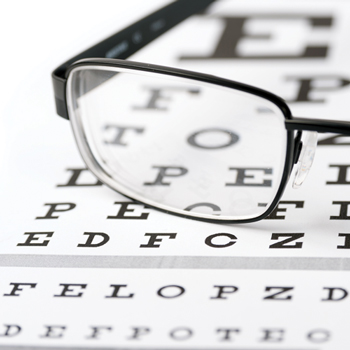Sunshine Act alone may not alter doctor-pharma relations
Some experts say the Physician Payments Sunshine Act has accomplished disclosure of gifts to physicians, but others say that the impact has fallen short of the hoped-for diminishment of inappropriate industry-physician relationships.
If the Physician Payments Sunshine Act is shedding light on anything, it may be the fact that substantial uncertainty still surrounds the reporting of physician-industry relations.
The legislation, passed as part of the Affordable Care Act in 2010, shows any payments and gifts valued above $10 on the CMS Open Payments website. The website has been up and running since 2014, with data collection beginning in 2013. The idea is to document publicly the financial interactions between industry and physicians.

Advocates of the Sunshine Act contend that patients would respond negatively if they knew their physician was being influenced, making physicians less willing to accept industry payments. As a result, outside influence on medicine would decline.
Some experts say the Sunshine Act has accomplished disclosure—what it set out to do—and that its promise can be fulfilled if additional steps are taken. But others say that the impact has fallen short of the hoped-for chilling of inappropriate industry-physician relationships.
The numbers on the CMS website appear to support the latter argument. The number of records published has remained at about 12 million since 2014 (the first full year of data collection). The total value including research and investments was $7.86 billion in 2014 but has increased to roughly $8 billion in subsequent years. The number of physicians with payment records was 625,000 in 2014 and has continued to climb to 631,000 in 2016, the most recent year for which data have been published.
Experts say the impact of the law may be tempered because physicians may still not be aware that these data are being publicly reported or because they may not believe they can be influenced.
“We know from the literature that doctors say ‘Marketing by pharmaceutical companies doesn't affect me, but I worry about my colleague,’” said Stephen R. Smith, MD, MPH, professor emeritus of family medicine at Warrant Alpert Medical School of Brown University in Providence, R.I. “Every doctor thinks he or she is immune.”
Susan Chimonas, PhD, led a series of focus groups with physicians about the Sunshine Act in 2015 and reported her results online on May 24, 2017, in the American Journal of Bioethics.
“When I spoke to physicians it wasn't that different from when I did focus groups 10 years ago about denial that [conflicts of interest] could affect a physician. … I was taken aback by this lack of progress,” said Dr. Chimonas, a research scholar and co-director of research at Columbia University in New York.
In her research, she heard that denial from physicians with a range of experiences: older physicians who had been regularly taken on trips to Europe and the Caribbean, staying in four-star hotels with fancy dinners; scientists who earned more from their patents than from their salaries; and individual participants like the person who was upset because her pharmaceutical representative was no longer bringing in her favorite crab cakes.
“Maybe we were naïve to think that the Sunshine Act was going to take care of this [problem],” she said. “There's still a lot of work to be done.”
Gray areas
While the Sunshine Act outlines specific rules (for more details, see sidebar), physicians may struggle with situations in which a conflict of interest (COI) is tacit.
For example, Dr. Smith discussed a physician who was asked by a pharmaceutical company to meet with their representatives and other colleagues in a restaurant where lunch was served. She was paid $600 for three hours.
“This was probably in a very gray area with medical school policy,” Dr. Smith said. “Presentations on use of all health care products, regardless of source, need to take place in a structured learning environment. Vendor talks at a restaurant are inappropriate.”
He said the physician felt it was OK to accept the invitation because the company was seeking advice and not overtly trying to market anything, but that very well may not have been the case.
“Pharmaceutical companies invite doctors for their expertise, but it's just a marketing tool,” Dr. Smith said. They're not interested in what [the doctors] have to say. They just want them to feel like experts.”
While COIs can be possible with small- or relatively small-ticket items, of greatest concern are payments involving serving on formulary committees, recommending practice guidelines, or publishing clinical trials, said Bernard Lo, MD, FACP, president and CEO of the Greenwall Foundation, a bioethics research institute based in New York, and author of a May 2, 2017, JAMA viewpoint on payments to physicians.
If a physician is getting $200,000 a year for promotional talks for a company, that raises questions, he said.
“At a certain level you wonder does a physician have an independent critical stance toward a company or product he is consulting with,” Dr. Lo said.
He emphasized that all physicians should understand financial COIs and ACP's position on them.
Next steps
Aaron S. Kesselheim, MD, JD, MPH, associate professor of medicine at Brigham and Women's Hospital and Harvard Medical School in Boston, said the Sunshine Act has been a critical step forward in addressing concerns about hidden relationships. In that regard, the law fulfilled a main goal of providing transparency to an area that was eroding trust in the medical profession, he said.
“It wasn't necessarily intended to be a turning point in financial relationships,” he said.
But it's now time to consider strategies for next steps, said experts, who suggested the following:
- Include more detailed information on the Open Payments website about the source of payments.
- Have organizations institute policies to review the website for their clinicians yearly and discuss potential conflicts.
- Develop professional education about relationships with industry to increase awareness of subtle strategies used to influence behavior.
- Encourage university policies to closely look at financial connections to ensure that committees operate in a way that minimizes or eliminates industry relationships.
- Have states ban gifts and meals from industry to physicians.
- Encourage physicians to take responsibility for sharing information about industry connections and be prepared to answer patients' questions.
When it comes to the big picture, Dr. Kesselheim said just having the information available has yielded a promising second outcome: years of data about the financial relationship between outcomes and drugs that could be a gold mine for researchers.
Dr. Lo agreed that the ability to track people over time can have huge implications. “That can drive policies on reimbursement and efforts to control costs of drugs,” he said.
Both physicians and patients would benefit from these next steps, said Dr. Lo. For example, physicians would know whether they are taking CME courses in which speakers have been paid by companies whose representatives essentially wrote and approved their talks. And it would ensure that, for example, mammogram guidelines aren't written by a committee whose members are paid by the company that makes mammogram machines.
Dr. Chimonas is hopeful that the Sunshine Act may lead to policies that will prompt change.
“The Sunshine Act is a step forward,” she said. “We can now quantify how physicians are taking financial benefit from industry, even if it's just a crab cake. … Now we need to see physicians adjusting their behavior based on this new evidence.”





